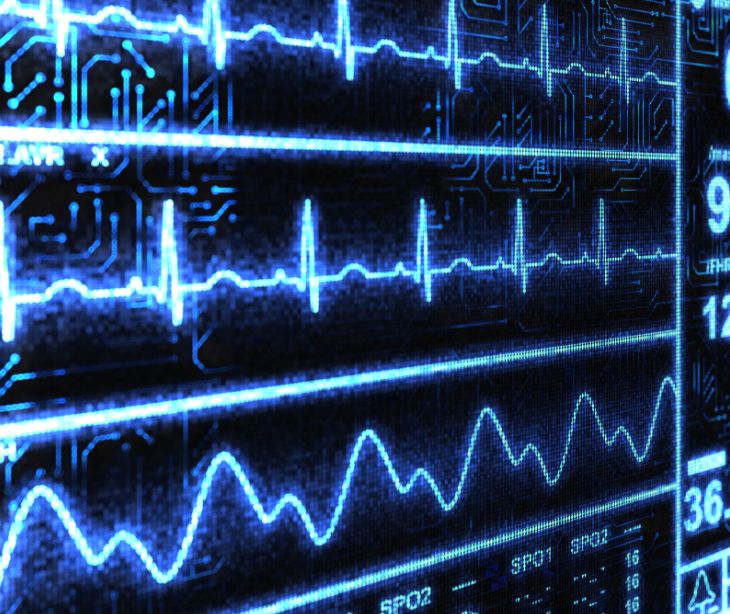4 min read
Enhancing cardiac rehabilitation monitoring with HIPAA compliant email
Farah Amod
April 02, 2024

HIPAA compliant email solutions can enhance remote cardiac rehabilitation monitoring. Ensuring the privacy and security of patient health information helps healthcare providers effectively communicate with patients, monitor their progress, and provide personalized recommendations.
Understanding remote cardiac rehabilitation monitoring
Remote cardiac rehabilitation monitoring is a method of monitoring and managing the recovery process of patients with cardiac conditions from a distance. It allows healthcare providers to track a patient's progress, provide necessary guidance, and ensure compliance with the rehabilitation program without requiring frequent in-person visits. This approach is particularly beneficial for patients who live in remote areas or have limited mobility.
The remote cardiac rehabilitation monitoring process involves various technologies, including wearable devices, mobile applications, and telemedicine platforms. According to Diagnostic and Interventional Cardiology (DAIC), 93% of clinicians currently use remote patient monitoring (RPM) technologies across all cardiac rehab, marking a significant integration of technological advancements in the healthcare sector.
The CEO of Vivalink, Jiang Li, emphasized the indispensable role of RPM technologies in transforming cardiac rehabilitation, stating “that this industry shift is poised to improve patient outcomes while reducing the strain on healthcare systems and fostering a more sustainable and patient-centric approach to cardiac health.”
These technologies enable patients to transmit health data, such as heart rate, blood pressure, and exercise metrics, to their healthcare providers in real-time. By remotely monitoring these metrics, healthcare professionals can make informed decisions about the patient's treatment plan, adjust medications, and provide personalized recommendations to optimize their recovery.
Read more: What is remote patient monitoring?
Challenges of remote cardiac rehabilitation monitoring
While remote cardiac rehabilitation monitoring offers numerous benefits, it also presents a few challenges:
- The reliable transmission of patient data from wearable devices to healthcare providers.
- Connectivity issues, device compatibility, and user error can hinder the seamless transfer of data, leading to gaps in monitoring and potential delays in patient care.
- As in traditional cardiac rehabilitation programs, there is a need for ongoing patient engagement and motivation. Patients often benefit from the support and encouragement provided by healthcare professionals during in-person sessions. With remote monitoring, patients may feel isolated or lack the same level of motivation.
- The interoperability of different monitoring devices and software platforms can be a challenge. Healthcare providers often use a combination of wearable devices and software applications to collect and analyze patient data.
HIPAA compliant email solutions for remote cardiac rehabilitation monitoring
HIPAA compliant email solutions provide a secure and convenient way for healthcare providers to communicate with patients during remote cardiac rehabilitation monitoring. These solutions offer encryption, access controls, and audit trails to ensure the privacy and security of patient health information.
One example of a HIPAA compliant email solution is Paubox, a platform specifically designed for healthcare communication. Paubox uses seamless encryption to protect sensitive patient data, ensuring that it cannot be intercepted or accessed by unauthorized individuals. It also offers features such as marketing, forms and text messaging, allowing healthcare providers to securely exchange information with patients.
Benefits of using HIPAA compliant email solutions in healthcare
Using HIPAA compliant email solutions in remote cardiac rehabilitation monitoring offers several benefits for both healthcare providers and patients.
- Healthcare providers can prevent unauthorized access to patient data, reduce the risk of data breaches, and protect patient confidentiality by encrypting emails and implementing access controls.
- HIPAA compliant email solutions improve communication and collaboration between healthcare providers and patients. Patients can securely transmit their health data to their healthcare providers, allowing for timely monitoring and intervention if necessary.
- Healthcare providers can also communicate treatment plans, answer patient questions, and provide guidance through secure email channels, enhancing the patient-provider relationship.
- HIPAA compliant email solutions streamline administrative processes. Instead of relying on traditional mail or phone calls, healthcare providers can use secure email to send and receive important documents, such as medical records, consent forms, and appointment reminders. This saves time, reduces administrative costs, and improves overall efficiency in delivering healthcare services.
Read more: How HIPAA compliant email improves the patient experience
How to choose the right HIPAA compliant email solution for remote cardiac rehabilitation monitoring
When choosing a HIPAA compliant email solution for remote cardiac rehabilitation monitoring, several factors should be considered.
- Ensure that the solution is fully compliant with HIPAA regulations. Look for features such as encryption, access controls, and audit trails to ensure that patient health information is protected.
- Consider the solution's ease of use and compatibility. It should integrate seamlessly with other remote cardiac rehabilitation monitoring technologies, such as wearable devices and telemedicine platforms. User-friendly interfaces and intuitive workflows can enhance the patient and healthcare provider experience.
- Consider the scalability and flexibility of the solution. As the number of patients using remote cardiac rehabilitation monitoring increases, the email solution should be able to accommodate the growing demand without compromising performance or security.
- Assess the customer support and training provided by the email solution provider. Reliable technical support and training resources can help healthcare providers and patients maximize the email solution and effectively address any issues or concerns.
See also: HIPAA Compliant Email: The Definitive Guide
FAQs
What are HIPAA compliant email solutions?
HIPAA compliant email solutions are email services and platforms that adhere to the standards set by the Health Insurance Portability and Accountability Act (HIPAA) to ensure the secure transmission of protected health information (PHI) between healthcare providers, patients, and other relevant parties.
What features should a HIPAA compliant email solution have for remote cardiac rehabilitation monitoring?
A HIPAA compliant email solution for remote cardiac rehabilitation monitoring should include encryption, secure user authentication, audit trails, data retention policies, and secure attachments handling. These features are essential for protecting patient privacy and meeting HIPAA requirements.
How can healthcare providers ensure that they are using a HIPAA compliant email solution for remote cardiac rehabilitation monitoring?
Healthcare providers should verify that the email solution they are using has been specifically designed to meet HIPAA requirements. This may involve working with vendors who specialize in healthcare communication technology and obtaining Business Associate Agreements (BAAs) to ensure compliance.
Can patients securely communicate with their healthcare providers using HIPAA compliant email solutions?
Yes, patients can securely communicate with their healthcare providers using HIPAA compliant email solutions. This enables them to ask questions, report progress, and receive guidance while ensuring that their personal health information remains protected.
Read also: Top 10 HIPAA compliant email services
Subscribe to Paubox Weekly
Every Friday we'll bring you the most important news from Paubox. Our aim is to make you smarter, faster.



